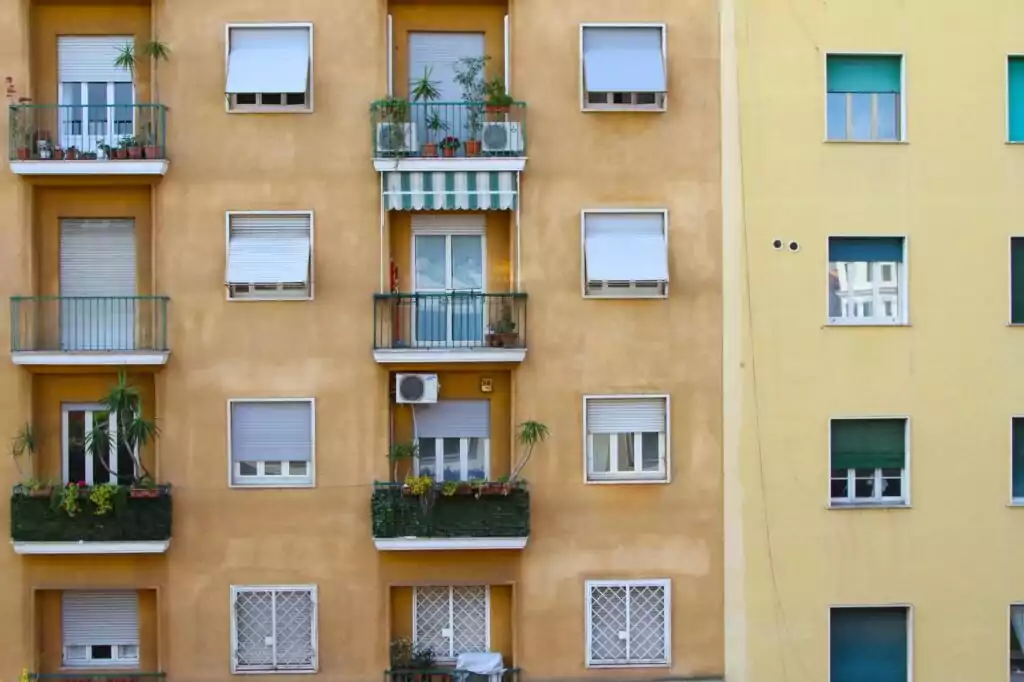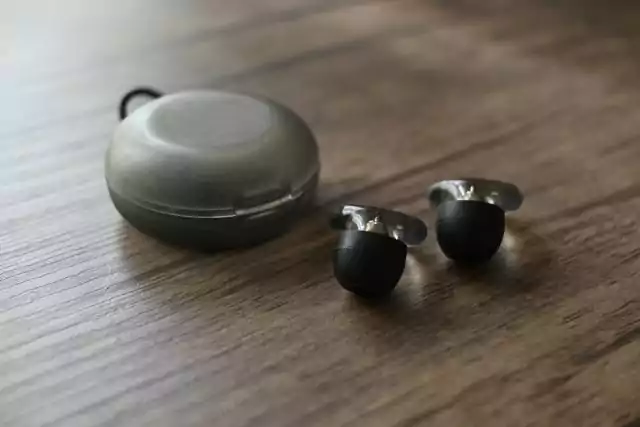“I can’t sleep because my neighbors upstairs are so noisy… I’m so annoyed. I just want to bang on the ceiling!”
“What can I do to deal with noise from the floor above?”
There are probably a lot of you out there who are thinking these things to yourself as you try to relax in your apartment.
When some people can’t tolerate noise from their upstairs neighbors any longer, they may bang on the ceiling. However, doing so is not recommended, as it may lead to even more trouble if the resident upstairs retaliates.
If you are troubled by noise in your apartment, then read on. We will be explaining why banging on the ceiling is definitely not the answer and discuss five more appropriate solutions.
Refrain from banging on the ceiling

If your neighbors upstairs are noisy, you may be tempted to bang on the ceiling. However, no matter how loud they may be, please refrain from doing so.
Depending on the time, frequency, and intensity, banging on the ceiling may actually be illegal.
For example, if your banging causes physical illness or mental suffering to the tenants upstairs, you may turn from a victim into a perpetrator. Although there are no specific legal regulations about common household noise, it is important to note that you could face legal repercussions for banging on the ceiling.
Furthermore, if you damage the ceiling by banging on it too forcefully, it will have to be repaired when you move out. Depending on the condition of the ceiling, it is not uncommon to be charged a hefty fee for repair costs.
Besides, when you bang on the ceiling, your neighbors may take revenge by making even more noise or ringing your doorbell. To avoid complicating matters, we recommend the following five solutions instead.
1. Write a letter and place it in your neighbor’s mailbox

The first solution is to write a letter to your neighbor upstairs and place it in their mailbox. However, please take note of the following three points when sending a letter:
- Maintain anonymity (do not reveal who you are)
- Be direct about the noise intensity and frequency
- Keep an objective attitude
Here is an example:
Day/Month/Year
Dear Mr./Ms. ___ of Room___,
We apologize for sending this letter without any notice.
We are writing this letter because we have a request regarding the noise from your apartment. We can often hear the noise from your washing machine, vacuum cleaner, etc. even in the middle of the night.
We understand that some things may be out of your control, but we would appreciate it if you could be more considerate of us at night (especially after ___ O’clock). We are very sorry, but if things continue, we may consider consulting with the property management company.
We apologize for the sudden request and appreciate your kind understanding.
Please be careful to avoid being seen when delivering the letter to their mailbox.
2. Consult with the property management company

If the noise problem does not improve after sending a letter, you should gather evidence and consult with the property management company of your apartment.
Oftentimes, the parties involved are actually unaware that they are making noise. As such, it is advisable to collect audio or video recordings of the noise when you are home. After having objective evidence, you can consult with the management company and ask for their advice.
3. Contact the police
If the management company cannot resolve the noise problem and it is causing you emotional distress and health problems, you can consider filing a police report with the evidence you gathered.
The police will likely ask you for your neighbors’ address and for you to confirm your identity. Once the police have received a complaint about household noise, they will usually keep an eye on the matter.
Many perpetrators are deterred by warnings from the police and become more careful about making noise. Additionally, perpetrators will not be able to find out who reported them.
4. Use earplugs

If you want nothing to do with the people living upstairs, earplugs are one way to block out noise. Today, a variety of earplugs are available, including digital earplugs and earplugs that can fit any ear shape.
When selecting earplugs, it is good to look out for noise reduction, comfort, and usability. Among them, noise reduction is the most important. Generally speaking, a normal voice (50db) can be reduced to a whisper (30db) by using earplugs with 20NRR.
However, even if they have excellent noise reduction, they may cause pain if they do not fit well. And they will certainly no longer be soundproof if there are gaps.
Although earplugs may not block out noise completely, they can still alleviate the stress caused by noise. We recommend earplugs made of silicone (like earphones) over those made of polyurethane because they are ear-tight and soundproof.
5. Consider moving out

If you are afraid that the noise from upstairs will worsen or that your neighbors will retaliate, you can consider moving out. However, if you are moving to a new place, please keep the following five points in mind to avoid any more noise problems:
- Check the building structure
In order to find a rental apartment where noise is not a concern, it is important to check the building structure. Building structures for apartments are generally divided into two categories: reinforced concrete and steel-framed structures. Reinforced concrete buildings have superior soundproofing.
In reinforced concrete buildings, concrete is packed into the steel framework, resulting in higher wall density and excellent noise reduction. On the other hand, steel-framed and wooden buildings tend to have low soundproofing and allow sound to pass through. Additionally, avoid thin walls because noise from your neighbors can also easily pass through them.
- Check the surrounding area
An important factor that will determine how much noise you will experience is the location of the apartment. For example, if an apartment is located near a train station, the sound and vibrations of the trains passing by may be a concern.
You should also check for other potential sources of noise in the area, such as shops or schools.
- Check on existing residents
The amount of noise that is produced in an apartment also depends on the people living there. For example, if there are small children or pets, footsteps and animal noise will be a concern.
While it may be difficult to find out information about the residents, it is best to find out as much as you can before committing to a new apartment.
- Check the wall thickness
To check the wall thickness, tap lightly on the wall. If the structure is concrete, the wall will sound solid and dense when tapped.
On the other hand, drywall will sound hollow. In general, concrete walls are more soundproof than drywall.
- Check the common area
To choose an apartment where noise will not be a problem, take a look at the garbage disposal site and the mailboxes. Check to see if the residents have good manners and if there are any warnings about noise on the notice boards beside the elevators.
If the residents do not seem to have good manners and you see warnings about noise, it is likely that noise is a recurring problem there. In such a situation, it is best to be more prudent and search for another apartment.
If you would like to get a fresh start in a noise-free environment but have difficulty locating a quiet place, please contact Village House, where all buildings are reinforced concrete.
We can help you find a rental property where you can get some peace and quiet!
Related articles:
- Easy Tips for Soundproofing Your Apartment
- Getting Some Peace and Quiet: How to Reduce Street Noise in Your Apartment and More!
- Pros and Cons of Living on the Top Floor of an Apartment Building



